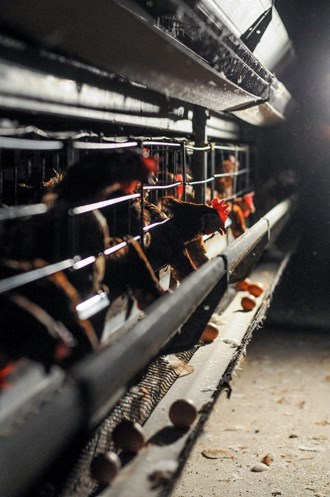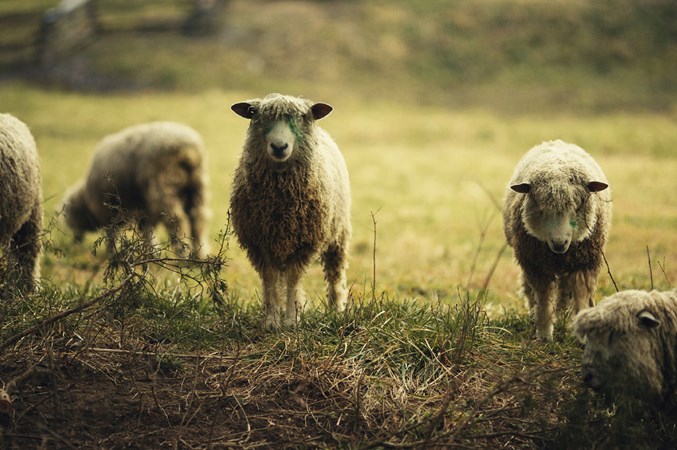Published 5/23/2022
by Allie Molinaro
Eight years ago, an avian influenza pandemic was dubbed the “worst agricultural disaster in decades.” As the latest outbreak ravages chicken and turkey farms across the globe, the lack of preparedness is unacceptable.
Avian influenza, also called "bird flu," is a virus that is often transmitted among a wide variety of bird species. It is typically most deadly to predatory birds such as hawks and owls, water birds such as ducks, and livestock birds such as chickens and turkeys. In 2014, a highly contagious avian flu outbreak in the U.S. led to the killing of over 50 million chickens and turkeys to contain the virus. Billions of dollars were lost, and hundreds of farmers and workers were financially and emotionally affected.
This January, a highly contagious Eurasian variant was detected in a wild wigeon (a member of the duck family) in South Carolina, the first time the virus had been identified in the nation since 2016. Since then, over 22 million egg-laying hens—more than the entire human populations of New York City, Los Angeles, Chicago, Houston, Phoenix, and Philadelphia combined—have been killed in attempts to contain the outbreak. Another 15.5 million domesticated turkeys, ducks, and other birds have also been lost.
While containing the outbreak is critical to protect the lives of other birds, the hellish response of some producers has highlighted the deplorable lack of regulatory oversight, absence of meaningful crisis protocols, and money-first attitude of an industry that relies on living beings (animal and human) to operate.
At one egg production plant in Iowa, over 5 million laying hens who were exposed to the virus were destroyed in one night using ventilation shutdown, a method of killing similar to leaving a dog or child in a hot car. In ventilation shutdown, airflow into the facility is cut off, and the interior is heated to over 104°F. “They cooked those birds alive,” one plant worker told The Guardian. The birds had already been living in “awful conditions,” crammed twelve to a cage.

While the USDA has permitted ventilation shutdown for avian flu culling, the practice is not an approved culling method under any circumstances by the UN World Organization for Animal Health (of which the U.S. is a member). Evidence shows chickens writhing, gasping, and throwing themselves against cage bars during ventilation shutdown in desperate attempts to escape. It can take anywhere from 30 minutes to several hours for the birds to die, causing unnecessary prolonged suffering.
Chickens are sentient beings who can feel joy, suffering, and pain. Only one federal law regulates poultry welfare during slaughter, and even that is written with an eye toward maintaining product quality rather than the actual welfare of the birds. There are no federal laws regulating how chickens and other farmed birds are treated before they are killed. Nine states have banned caged confinement of egg-laying hens, thanks to efforts by Compassion in World Farming and other groups. But the nation’s top egg-producing states such as Iowa, Indiana, and Ohio have yet to follow suit.
Over the last two years, we have all witnessed firsthand the importance of having prevention measures and coordinated protocols in place for when disease outbreaks occur. The USDA has praised itself for controlling the spread by quickly halting the movement of workers among flocks, but it has failed to address the glaring disease risks of factory farming. Cramming five million physically and mentally stressed birds into a dirty warehouse is not disease prevention; it is the epitome of a virus-breeding environment.
True disease preparedness and prevention start with a diverse and resilient food system. This equates to keeping smaller flocks, raising healthier birds in higher welfare conditions, and reducing overall reliance on animal-sourced foods. Compassion in World Farming is working at the policy and corporate levels to transition to practices that provide animals with happier lives and reduce the risks of widespread disease.

